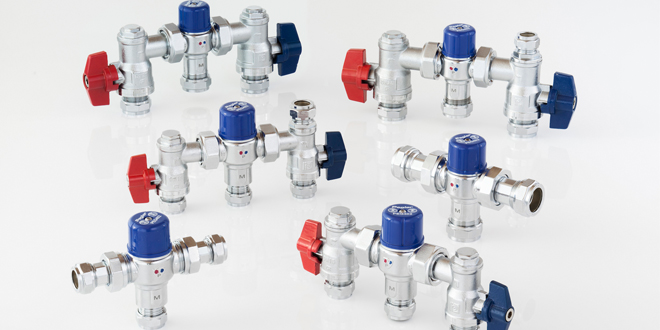TMV or Tobacco mosaic virus is a highly infectious plant virus that can affect a wide range of crops and plants. It is known to affect tobacco plants, but it can also infect other plants, including tomatoes, peppers, and cucumbers. TMV can cause significant damage to plant growth, reduce yield, and even kill the infected plant. Therefore, it is crucial to test for TMV to prevent its spread and control its effects.
There are several methods available for testing plants for TMV. These methods vary in their sensitivity, cost, and complexity. Here are some of the most commonly used methods:
ELISA (Enzyme-Linked Immunosorbent Assay)
ELISA is a widely used method for detecting TMV in plants. It works by detecting the presence of TMV-specific proteins in the plant tissue. In this method, a plant sample is ground into a liquid, and the liquid is added to a well containing an antibody specific to TMV. If TMV is present in the sample, it will bind to the antibody, forming a complex. The complex is then detected using an enzyme-linked secondary antibody that produces a color change. This color change indicates the presence of TMV in the sample.
ELISA is a sensitive and relatively simple method for testing plants for TMV. It can detect TMV at low concentrations, and the results are usually available within a few hours. However, it requires specialized equipment and reagents, which can make it expensive.
RT-PCR (Reverse Transcription Polymerase Chain Reaction)
RT-PCR is a molecular biology technique that can detect the genetic material of TMV in plants. In this method, RNA is extracted from the plant tissue and converted to complementary DNA (cDNA) using reverse transcriptase. The cDNA is then amplified using polymerase chain reaction (PCR) using TMV-specific primers. If TMV is present in the plant tissue, the PCR will produce a specific fragment of DNA that can be detected by gel electrophoresis or other methods.
RT-PCR is a highly sensitive method for detecting TMV in plants. It can detect TMV at very low concentrations, and the results are usually available within a day. However, it requires specialized equipment, reagents, and expertise, which can make it expensive and time-consuming. Tobacco mosaic
DAS-ELISA (Double Antibody Sandwich Enzyme-Linked Immunosorbent Assay)
DAS-ELISA is a modification of the ELISA method that uses two antibodies to detect TMV in plant tissue. In this method, a plant sample is ground into a liquid, and the liquid is added to a well containing an antibody specific to TMV. The TMV in the sample binds to the antibody, forming a complex. Another antibody specific to TMV is then added, which binds to the complex, forming a sandwich. The secondary antibody is then detected using an enzyme-linked tertiary antibody that produces a color change. This color change indicates the presence of TMV in the sample.
DAS-ELISA is a sensitive and relatively simple method for testing plants for TMV. It can detect TMV at low concentrations, and the results are usually available within a few hours. However, it requires specialized equipment and reagents, which can make it expensive.
Immunocapture RT-PCR
Immunocapture RT-PCR is a combination of ELISA and RT-PCR methods. In this method, a plant sample is ground into a liquid, and the liquid is added to a well containing an antibody specific to TMV. The TMV in the sample binds to the antibody, forming a complex. The complex is then captured using magnetic beads coated with antibodies specific to TMV. The captured complex is then used as a template for RT-PCR, where the RNA is extracted from the complex and converted to cDNA. The cDNA is then amplified using TMV-specific primers, and the resulting product is detected by gel electrophoresis or other methods. Immunocapture RT-PCR is a highly sensitive method for detecting TMV in plants. It can detect TMV at very low concentrations, and the results are usually available within a day. However, it requires specialized equipment, reagents, and expertise, which can make it expensive and time-consuming. Tobacco mosaic
Bioassay
Bioassay is a method for detecting TMV in plants that relies on infecting healthy plants with a sample of plant tissue suspected of containing TMV. In this method, a healthy plant is mechanically inoculated with a sample of plant tissue from the suspected infected plant. The healthy plant is then observed for the development of TMV symptoms, such as mosaic or mottling on the leaves. Tobacco mosaic
Bioassay is a relatively simple and inexpensive method for testing plants for TMV. However, it is less sensitive than the other methods described above, and the results may take several weeks to obtain.
In summary, there are several methods available for testing plants for TMV, including ELISA, RT-PCR, DAS-ELISA, immunocapture RT-PCR, and bioassay. These methods vary in their sensitivity, cost, and complexity, and the choice of method depends on the specific needs of the situation. ELISA and DAS-ELISA are sensitive and relatively simple methods for detecting TMV in plants, while RT-PCR and immunocapture RT-PCR are highly sensitive but require specialized equipment, reagents, and expertise. Bioassay is a simple and inexpensive method but is less sensitive than the other methods.

